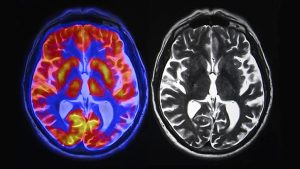As more become aware of the dangers of gadolinium retention in the body, people have been asking if doctors diagnosed them wrong all along. Many in the medical community still believe that gadolinium dye in MRA and MRI scans are harmless. Therefore, when victims come to their offices complaining of muscle spasms, brain fog or ligament pain, many doctors misdiagnose.
About Gadolinium
 Gadolinium is a chemical element carrying the atomic number 64 and the atomic symbol Gd. Belonging to a group of elements in the periodic table called Lanthanides, the chemical is a rare earth element typically used in microwave applications, color TV tubes, synthetic gemstones, compact discs, and computer memory. This chemical element is widely used as an injectable contrast agent when patients undergo magnetic resonance Imaging (MRI) and magnetic resonance angiography (MRA) scans. The medical community believes that when someone is injected with this dye that the body expels is naturally within a few hours. However, this is not always the case. The chemical agent can also stay in the body for months or years following a single imaging session.
Gadolinium is a chemical element carrying the atomic number 64 and the atomic symbol Gd. Belonging to a group of elements in the periodic table called Lanthanides, the chemical is a rare earth element typically used in microwave applications, color TV tubes, synthetic gemstones, compact discs, and computer memory. This chemical element is widely used as an injectable contrast agent when patients undergo magnetic resonance Imaging (MRI) and magnetic resonance angiography (MRA) scans. The medical community believes that when someone is injected with this dye that the body expels is naturally within a few hours. However, this is not always the case. The chemical agent can also stay in the body for months or years following a single imaging session.
Gadolinium Toxicity Mimicking Other Illnesses
It is hard for a patient to get a diagnosis of gadolinium toxicity. This is due to the fact that many in the medical community deny its existence. Therefore, when someone displays gadolinium toxicity symptoms, a doctor is quick to diagnosis it has something else. These symptoms include:
- Pain
- Aching, burning, tingling, prickling, or deep bone pain in extremities, joints, or head
- Dermal changes
- Tight skin, lesions, or hyperpigmentation
- Muscle issues
- Twitching and weakness
- Ocular problems
- Worsening vision, dry eyes, or bloodshot eyes
- Cognitive symptoms
- Ear, nose, and throat
- Tinnitus, swallowing, or voice problems
- Low body temperature
- Hair loss
- Itchy skin
- Balance problems
- Swelling of extremities
Commonly Misdiagnosed Illnesses
 Those who have been diagnosed with Multiple Sclerosis, Mercury Poisoning, or cancer without supporting tests confirming these diagnoses should seek additional opinions. Gadolinium toxicity manifests in a large range of symptoms. A lab can test for the retention with a simple 24-hour urine test. It may not be definitive, however. High levels of gadolinium only show proof of retaining the chemical agent. Also, having a lower level of the chemical does not mean there weren’t high levels previously. Patients can take the test for differing lengths of time, but a 24-hour collection sample provides the most consistent results. It also reduces the chance of variables.
Those who have been diagnosed with Multiple Sclerosis, Mercury Poisoning, or cancer without supporting tests confirming these diagnoses should seek additional opinions. Gadolinium toxicity manifests in a large range of symptoms. A lab can test for the retention with a simple 24-hour urine test. It may not be definitive, however. High levels of gadolinium only show proof of retaining the chemical agent. Also, having a lower level of the chemical does not mean there weren’t high levels previously. Patients can take the test for differing lengths of time, but a 24-hour collection sample provides the most consistent results. It also reduces the chance of variables.
A doctor may request the 24-hour urine test through testing agencies like Quest Diagnostics or Lab Corp. The test is around $100. There are also online options for testing for toxic metals if a medical professional will not order the test. This is the simplest and least invasive testing form. If the urine test comes back negative, a lab can perform a follow-up blood test.
Free Case Evaluation
A gadolinium lawsuit may be an option for patients suffering from gadolinium retention and related complications. Gadolinium, used in dyes to increase the clarity of MRI and MRA scans, can create chemical element retention in the body, Therefore, this increases the risk of gadolinium deposition disease and nephrogenic systemic fibrosis. These conditions are accompanied by symptoms that include severe physical pain and cognitive difficulties. Affected patients and their loved ones may be able to file a lawsuit and recover damages.
For more information, contact The Michael Brady Lynch Firm. We offer free, confidential, no-obligation consultations. We have also over 20 years experience helping consumers injured by unsafe products manufactured by large companies.


